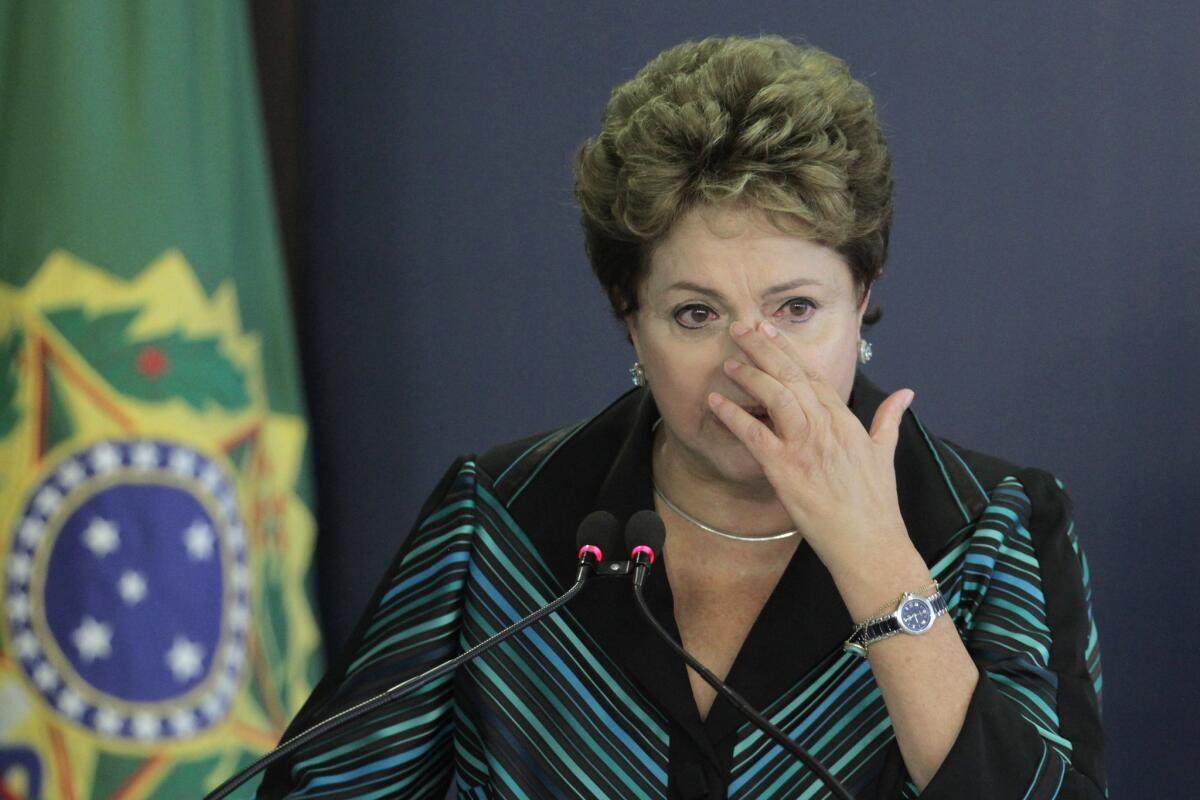Brazil confronts past in report about crimes of dictatorship

- Share via
Reporting from Belem, Brazil — Brazil’s National Truth Commission has announced the results of an investigation of crimes committed by the country’s military dictatorship, revealing the scope of torture, killings and disappearances carried out from 1964 to 1985 and calling for the perpetrators to be punished.
President Dilma Rousseff, a former left-wing guerrilla who was imprisoned and tortured by the government, wept as she received the report [link in Portuguese] Wednesday.
The commission documented the cases of 434 people who were either killed or “disappeared” by the government, and cases of torture and human rights violations carried out against “organized labor, farmers, Christian churches, indigenous peoples and universities,” as well as military officers who favored a return to democracy.
The practices were a “a human tragedy that cannot be justified by any type of motivation,” the report concludes. “At the same time that these reports expose scenes of horror that are little known by millions of Brazilians, they also honor the victims of crimes committed by the Brazilian government and its armed forces, which during the dictatorship instituted the systematic violation of human rights and the condition of a police state.”
The report also notes that hundreds of Brazilian military officers received training in torture from the United States at the School of the Americas in Panama.
A military coup in Brazil in 1964, backed at the time by the United States, led to the creation of the first of a series of brutal military dictatorships across South America, which engaged in widespread human rights abuses in what has sometimes been called “The Dirty War” against perceived enemies of the state.
Argentina, Chile, and Uruguay have already carried out similar truth and reconciliation processes and convicted top officials, but authorities in Brazil have been shielded from prosecution by a 1979 amnesty law. The Truth Commission wants an end to amnesty, as do Amnesty International and Human Rights Watch.
“The commission has made a major contribution by providing an authoritative and long-overdue account of the horrible crimes that took place during the dictatorship,” said Maria Laura Canineu, Brazil director at Human Rights Watch. “Just as important, it has pointed the way to the next crucial step that Brazil needs to take: making sure that those who committed atrocities are finally brought to justice.”
The Truth Commission, however, does not have the ability to prosecute, and Brazilian courts have upheld the amnesty. Despite Rousseff’s close connection to the crimes, she has not pressed for legal action and rarely speaks of the period, choosing to reject the call for revenge.
“Truth does not mean retaliation. Truth should not be a motivation for hate or for the settling of scores,” Rousseff said Wednesday. “Truth frees us from what needed to be said, to be explained, to be known.”
Bevins is a special correspondent
More to Read
Sign up for Essential California
The most important California stories and recommendations in your inbox every morning.
You may occasionally receive promotional content from the Los Angeles Times.










